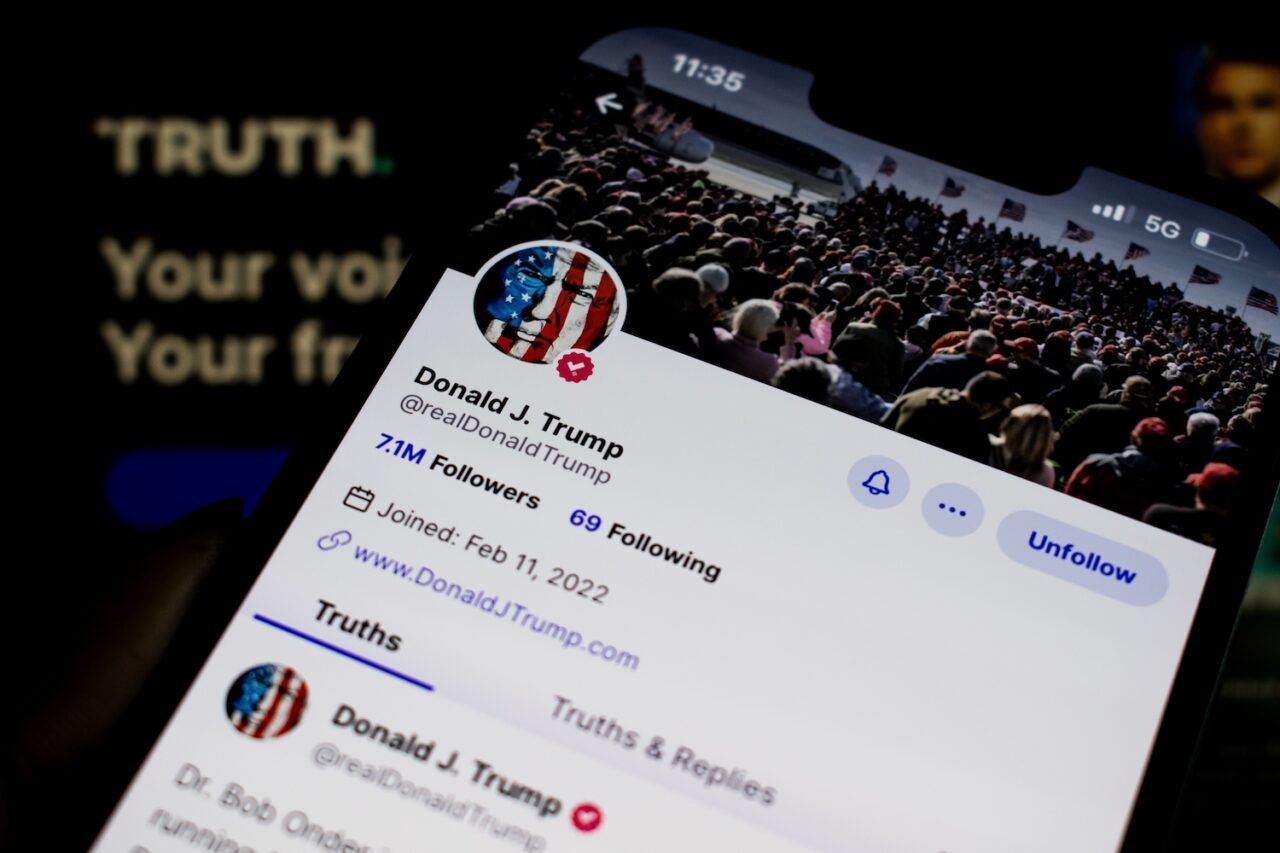Donald Trump appears to be getting back into the casino business, in a manner of speaking. This time, however, it won’t be Atlantic City slot machines and roulette tables.
On Tuesday, the president’s media firm, Trump Media & Technology Group Corp. (TMTG), announced a partnership with the digital asset exchange Crypto to launch a new product called “Truth Predict.” This platform will enable Truth Social users to bet on a wide range of future events such as election outcomes, sports, and commodity prices.
These wagers will take the form of prediction contracts, which are typically priced in cents and represent the percentage of confidence bettors have in a potential outcome. If a bet is correct, the contract settles for $1, but if incorrect, it goes to zero.
TMTG’s new offering will enter a competitive space alongside existing prediction markets like the US-regulated Kalshi and Polymarket. Polymarket, headquartered in New York, has not offered services to US customers since settling with the Commodity Futures Trading Commission (CFTC) in 2022. Truth Predict plans to launch in the US first and then expand internationally “once all the requisite requirements are met.” Beta testing is set to begin soon, according to Tuesday’s announcement.
Notably, President Trump was the largest shareholder in TMTG before transferring 114,750,000 shares—valued at approximately $4 billion—to a trust controlled by his son, Donald Trump Jr., following his general election victory last year. However, SEC filings suggest that President Trump maintains indirect control over these shares.
Digital prediction markets raise several complex philosophical questions. Supporters argue that decentralized forecasting holds significant value by providing a window into what the general public truly expects, free from corporate and political influences. Ethereum founder Vitalik Buterin shared his perspective on X last year, saying, “The point of Polymarket is that from the perspective of traders, it’s a betting site, but from the perspective of viewers it’s a news site. There are all kinds of people (including elites) on Twitter and the internet making harmful and inaccurate predictions about conflicts, and being able to go and see if people with actual skin in the game think that something has a 2% chance or a 50% chance is a valuable feature that can help keep people sane.”
Nevertheless, these platforms face criticism, especially for hosting “war markets” where users can bet on ongoing or potential geopolitical conflicts. For example, Polymarket currently estimates a 3% chance of “Will China invade Taiwan in 2025?” and a 14% chance of “Will the U.S. invade Venezuela in 2025?”. While the present level of liquidity in such markets is unlikely to influence real-world outcomes, critics warn that if enough money flows into these markets, it could incentivize powerful interests to manipulate events—such as assassinations, coups, or wars—to affect betting outcomes.
Zach Rynes, a community liaison for the decentralized oracle network Chainlink, commented on X last year: “It’s an extreme example, but any prediction market about an influenceable event will start to either incentivize action or subsidize the inevitable if sufficiently liquid enough, even if that wasn’t the original intention. If these markets traded with $100 million+ liquidity, would that change the outcome? Maybe not, but if insider traded, would they not be subsidizing war? I don’t think prediction markets are passive observers; their existence influences outcomes when operating at scale.”
To comply with regulations, the CFTC prohibits event contracts related to terrorism, assassination, war, or other illegal activities. As a result, US-approved firms don’t offer direct invasion markets like those found on Polymarket. However, controversial incentives remain present in some markets. For example, on Kalshi, users can wager on the number of deportations during Trump’s first year in office or whether leaders such as Venezuelan President Nicolás Maduro will remain in power through 2025. To dissuade wagers on assassination, Kalshi notes that in the event of Maduro’s death, the market would pay out the last traded price rather than settling at $1 or zero.
These controversial incentives may become even more complex on a prediction markets platform closely affiliated with a sitting or former president of the United States.
Gizmodo reached out to Truth Social for comment and will provide updates if a response is received.
https://gizmodo.com/truth-social-prediction-market-2000677813
